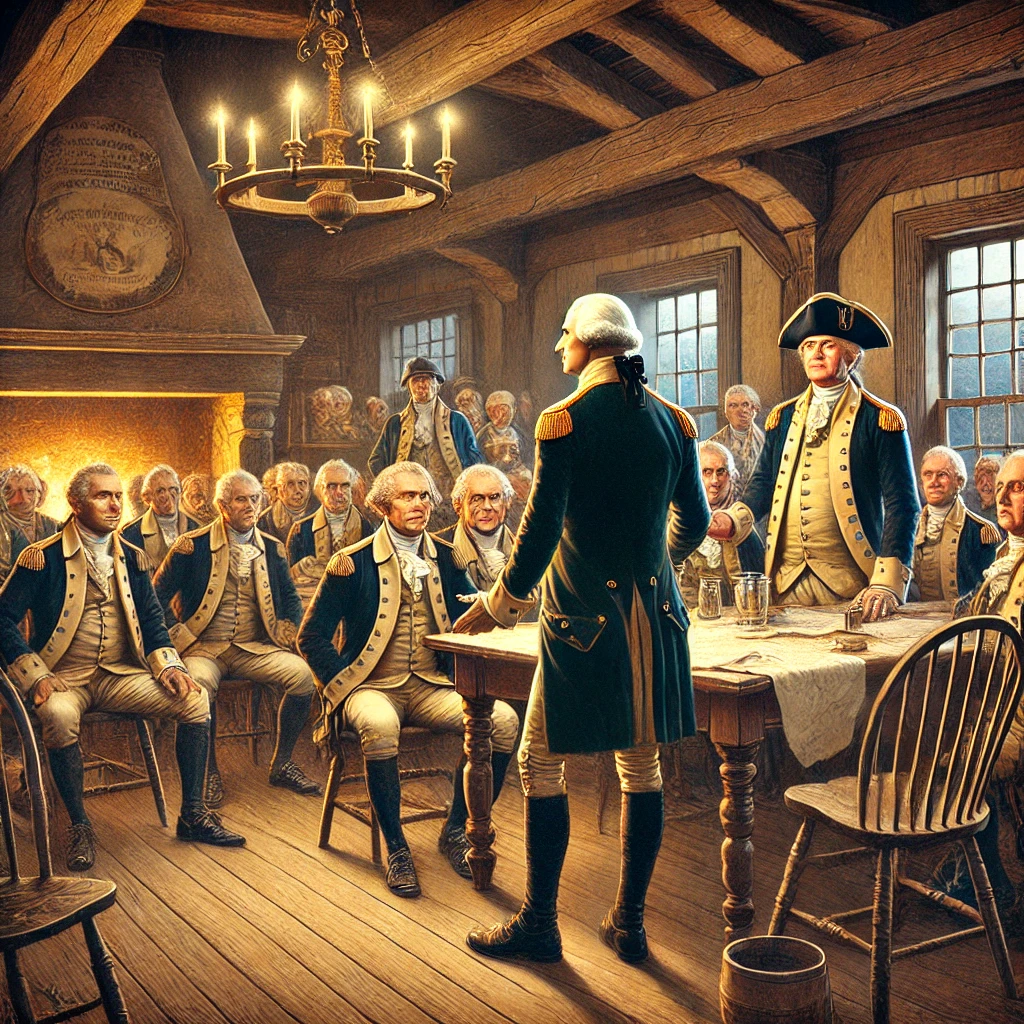On December 4, 1783, an emotional chapter in American history unfolded at Fraunces Tavern in New York City. General George Washington, the commander-in-chief of the Continental Army, bid farewell to his officers after leading the colonies to victory in the American Revolutionary War. The occasion marked not only the end of Washington’s military service but also the conclusion of a long and arduous fight for independence. This moment remains a poignant reminder of Washington’s humility, leadership, and vision for a new nation.

The Scene at Fraunces Tavern
Fraunces Tavern, a modest yet historic location in lower Manhattan, set the stage for this deeply emotional farewell. Washington addressed his officers in the Long Room, many of whom had stood by his side through the hardships of war. With tears in his eyes, he thanked them for their loyalty, dedication, and sacrifices. As the story goes, Washington raised a glass and said, “With a heart full of love and gratitude, I now take leave of you.” The room, filled with seasoned warriors, fell silent as they embraced their leader one last time.
The farewell symbolized the end of a hard-fought revolution and the dawn of a new era. Washington’s departure from military command was not only an act of personal humility but also a powerful statement about the nature of the fledgling republic—one where power would be transferred peacefully and where leaders served the people rather than ruling them.

Significance in History
Washington’s farewell was extraordinary because it contrasted sharply with the norms of the time. In an era when victorious generals often seized political power or crowned themselves rulers, Washington chose a different path. He voluntarily relinquished his military authority and returned to civilian life. This decision solidified his reputation as a leader committed to democratic principles and established a precedent that would shape the new nation’s political culture.
The farewell also underscored the depth of camaraderie forged among the officers of the Continental Army. These men had endured freezing winters, grueling marches, and the constant threat of defeat. Their bond with Washington went beyond military duty—it was rooted in shared sacrifices for a cause greater than themselves.
Lasting Impact

The events of December 4, 1783, continue to resonate in American history and political thought. Washington’s actions at Fraunces Tavern set a standard for leadership that has inspired countless leaders around the world. His decision to step away from power reinforced the idea that America was to be governed by the rule of law and not by the whims of individuals.
Today, Fraunces Tavern stands as a museum and a reminder of this pivotal moment. Visitors can walk through the very room where Washington spoke, reflecting on the sacrifices and principles that laid the foundation for the United States. The farewell is also celebrated as an example of the humility and integrity that have become synonymous with Washington’s legacy.
Washington’s goodbye to his officers was more than just a farewell—it was a defining moment in the birth of a nation. It embodied the ideals of service, sacrifice, and the peaceful transfer of power that remain cornerstones of American democracy. This act of humility and grace reminds us that true leadership lies not in the accumulation of power, but in the willingness to relinquish it for the greater good.
